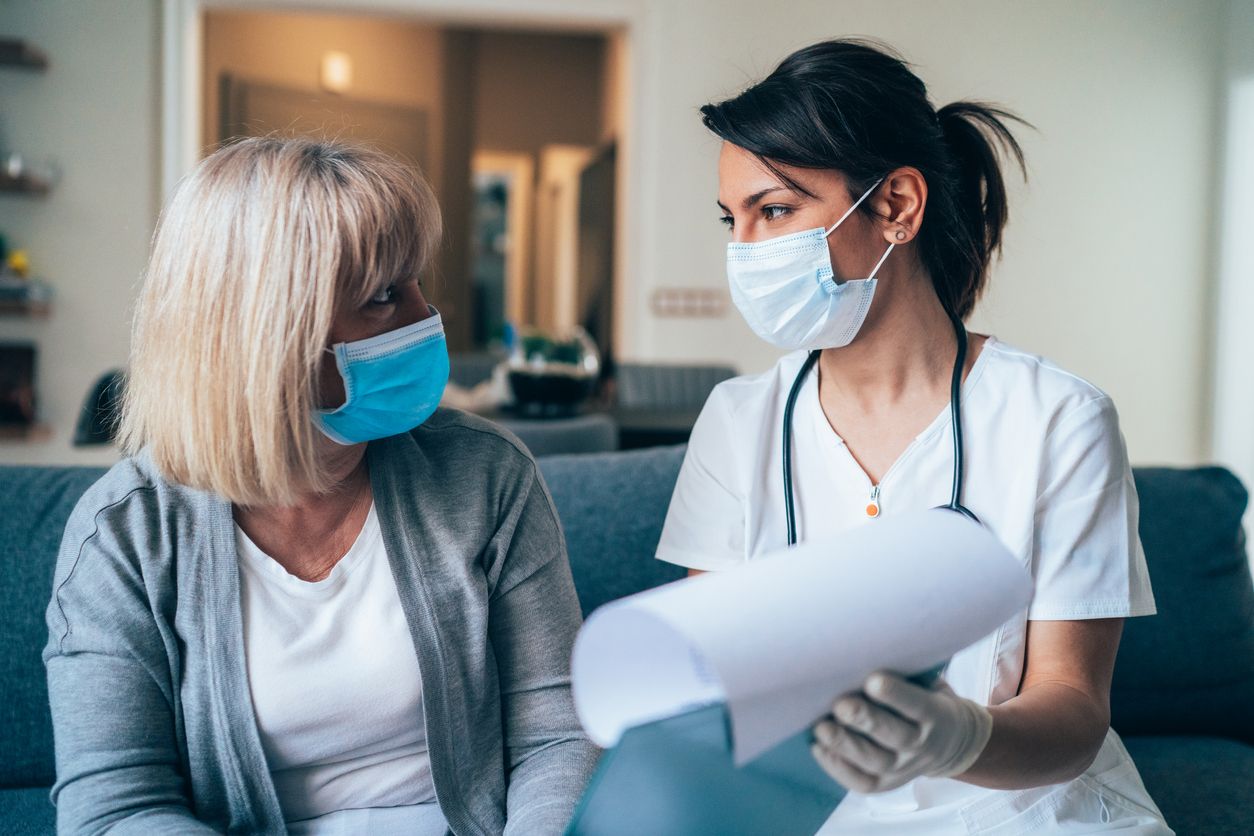In response to the coronavirus pandemic, most healthcare facilities have adjusted their model of care, restricting office appointments to emergency or immediate needs. As a result, many doctors have stopped seeing patients in person for routine procedures and checkups.
While staying home helps reduce the spread of the virus by keeping offices and waiting rooms empty and by allowing healthcare systems to better allocate resources to fight COVID-19, you might be concerned that postponing regular checkups and screenings could put your health at risk.
Many women have gone without breast exams, mammograms, Pap smears and other important diagnostic tests and vaccines for a month or more due to stay-at-home orders or other social distancing efforts. But staying safe from the virus doesn't necessarily mean forgoing preventive healthcare.
Dr. Lisa Larkin, an internal medicine and women's health specialist in Cincinnati; founder of Ms. Medicine, a national practice model of women's health trained providers; and member of HealthyWomen's Women's Health Advisory Council, offers the following tips for women wondering which procedures should continue during this period of social distancing and which ones are safe to delay.
Cancer screenings
Women at high risk of developing cancer, such as those with a strong family history of cancer or those showing symptoms, should consider it essential to keep up with screening appointments.
Evaluations for other women may be postponed. For example, if your mammogram is due and you're not at high risk of breast cancer and don't feel any irregularities during a self-examination, it's OK to wait a little longer. These criteria also apply to MRIs and breast ultrasounds.
Some planned treatments can also be postponed, even those that might seem to be essential. Larkin cites breast cancer as an example — some patients who have received a breast cancer diagnosis might still have their treatments rescheduled by their doctors.
“This might feel surprising or disappointing, but your doctors will only do so in the best interest of your health and when the delay will not compromise the effectiveness of your treatment," Larkin said. She noted that doctors consider multiple factors — including the nature of a patient's current diagnosis, risk factors and necessity of the required tests — before postponing or canceling any appointments.
If you're due for an elective colonoscopy, but not at elevated risk of colon cancer and not having symptoms, it's OK to wait on this as well. Larkin also suggests talking to your doctor about at-home, non-invasive testing options for adults over 45 at average risk.
Gynecological concerns
Some vaginal infections, severe vaginal bleeding or symptoms of an ectopic pregnancy would require an in-person visit for an exam. If you have concerns, talk to your doctor to determine whether you need to be seen.
For most women, regular in-person checkups, pelvic exams, elective procedures, labs and screenings can be delayed until there is a lower risk of being exposed to coronavirus.
Vaccinations
Vaccines should be completed immediately for anyone who is immune compromised. For healthy individuals, routine vaccinations should be completed at the first in-person routine follow up visit with your primary care provider.
A second coronavirus wave this fall remains a possibility, so a flu vaccine is especially important. Women should schedule their flu shots as soon as they're available later this year to avoid a potential combined infection of COVID-19 and the flu.
Seeing your doctor
Nearly every office and health system has modified the way it handles patient visits to ensure the safety of patients, providers and other office employees. Many have expanded telehealth or virtual office visit options to meet patient needs.
“In my practice we've moved to have only one physician physically working in the office at any time to limit the number of people present," Larkin said. “No patients are waiting in the waiting room at any time. Our other providers are doing telehealth office visits from home. We've been offering our patients the choice to have a telehealth visit or an in-person visit."
Depending on your medical needs, you may be treated with a combination of telehealth and in-person care. You may see your doctor via a virtual visit but go to a physical office to have lab testing completed.
If you haven't tried a virtual appointment before, you might be surprised by its effectiveness. Many medical issues can be addressed with telehealth office visits, including prescription refills, help with menopause symptoms, mental health care, and routine check-ins after a procedure. Don't worry if you've never done a virtual visit before; your doctor's office can help you set it up.
Going forward
As governments begin to gradually reopen businesses, your doctors might begin rescheduling postponed appointments or scheduling new, overdue ones.
That's when those mammograms, colonoscopies and lab tests can be put back on your calendar. As always, check with your doctor if you feel unsure about returning to in-person appointments or if you're uncertain about what can be delayed and what is essential.
In addition to limiting the number of patients and physicians working at any given time, many facilities have instituted other procedures to ensure social distancing takes place for patient safety, such as having patients wait in their cars until providers are ready to see them.
“Even though we are temporarily limited in our ability to see you in person, we know it's the right choice to make sure we are keeping you and our communities safe," Larkin said. “When we are able to resume our regular care plans, make sure to catch up on appointments you missed."


